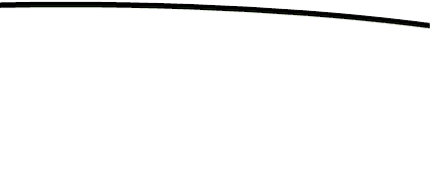Tooth-Healthy Eating for Every Age and Stage
Even though your baby’s first tooth may come in around six months of age, baby teeth are nearly completely formed at birth. A baby’s permanent teeth are also starting to form as soon as they are born.
This means that even though a baby doesn’t have any teeth yet, it is still very important to feed your baby healthy foods that will help them grow strong teeth.
For breastfed babies:
If you are nursing your baby, it is important to:
-
Make sure that you eat a healthy diet so that your baby is getting good nutrition to build healthy teeth
-
Remember that breast milk contains sugar, so babies who are breastfed can get tooth decay just like babies who are bottle-fed
-
Follow a feeding schedule
-
Not let your baby nurse all night, which can happen when you sleep with your baby in your bed
-
Remember that when milk sits on a baby’s teeth for a long time, it can cause decay
-
Be sure to clean your baby’s mouth with a dampened soft cloth or gauze after every feeding
-
Avoid dipping your baby’s pacifier in anything sweet like sugar or honey
For bottle-fed babies:
While your baby is being bottle-fed it is important to remember that:
-
Formula contains sugar, so babies who are bottle fed can get tooth decay
-
Your baby should not get into the habit of sleeping with a bottle at night or during naptime
-
When milk sits on a baby’s teeth for a long time, it can cause decay
-
Cleaning your baby’s mouth with a dampened soft cloth or gauze after every feeding is a good habit to form
-
Baby’s bottle should only be used for feeding and not as a pacifier
-
Dipping your baby’s pacifier in anything sweet like sugar or honey exposes their mouths to sugar, so it should be avoided
Children who have not had sugary snacks before will enjoy things like vegetables, fruit and cheese. A baby’s eating habits start when the child is young, so now is the time to serve the healthiest foods you can.
Once you have introduced solid food to your child:
-
Choose foods that do not contain added sugar
-
Vegetables and fruits contain all the natural sugar a baby needs
-
If you make your own baby food, do not add sugar
-
Between feedings, put only water in the bottle or sippy cup, not milk, juice, soda, or other sweet drinks.
Once your baby is able to eat finger foods:
-
Choose foods that are low in sugar
-
Avoid serving snacks that stick to teeth like chewy candies, raisins, and crackers in between meals. Save those foods to eat with a meal or for special occasions only
-
Between meals, put only water in the bottle or sippy cup, not milk, juice, soda, or other sweet drinks
Eating a healthy diet means that your child eats many foods that build strong teeth and gums. A good diet can also help prevent cavities.
Some foods that are healthy and good for teeth are:
-
Fruits and vegetables: Fresh and crunchy fruits and vegetables (such as carrots, apples, celery, and pears) should make up half of what your child eats every day.
-
Grains: Whole grains like oatmeal, brown rice, and whole wheat bread.
-
Dairy: Low-fat or fat-free milk, cheese, and yogurt.
-
Lean protein: Lean beef, skinless chicken breast, or fish. Eggs, beans, peas, and seeds are also good ways for your child to eat protein that aren’t meat.
Foods with Sugar Can Cause Cavities
Sugary foods taste great, but they are not good for teeth. Germs called bacteria live in our mouths all the time. The bacteria forms sticky stuff called plaque. Plaque lives on teeth. When we eat sugary things, it’s food for the bacteria. The bacteria gobble up the sugar and turn it into acid. The acid eats away at teeth, and that’s how a cavity starts.
The more often we eat sugary snacks during the day, the more we feed the bacteria in our mouths that cause cavities. That’s why it is good to eat foods that are very low in sugar and to avoid snacking on sugary foods or drinking soda, sports drinks, juice or other sweet drinks in between meals.
Sugar is in many foods, not just candy and soda. It is even found in things that don’t taste sweet like pizza, bread, and rolls. All types of sugars can cause cavities.
How to limit sugar
-
Limit the snacks your child eats in between meals.
-
Limit how often your child gets sugary food or drinks.
-
If you do serve cookies, crackers, cereals, or soda, it helps to serve them with a meal, instead of as a snack. Eating these foods with a full meal is good because more saliva is produced and helps wash away the sugar.
-
Read the labels on food and drink containers to find foods that are low in sugar.
-
When giving your child a drink in between meals, choose water. Milk (especially flavored milks like chocolate, strawberry, and coffee milk), juice, sports drinks, iced teas, frozen drinks, and soda all contain sugar.
While avoiding sugary foods and eating a balanced diet can help prevent cavities, it is important to brush your child’s teeth with fluoride toothpaste and a toothbrush two times a day for two minutes each time every day.
To Keep Your Child’s Teeth Healthy, Remember To:
-
Avoid sweets between meals
-
Give your child fruit, vegetables, dairy, and lean proteins to eat
-
Choose water instead of sugary drinks
-
Brush your child’s teeth with fluoride toothpaste two times a day for two minutes each time every day.






